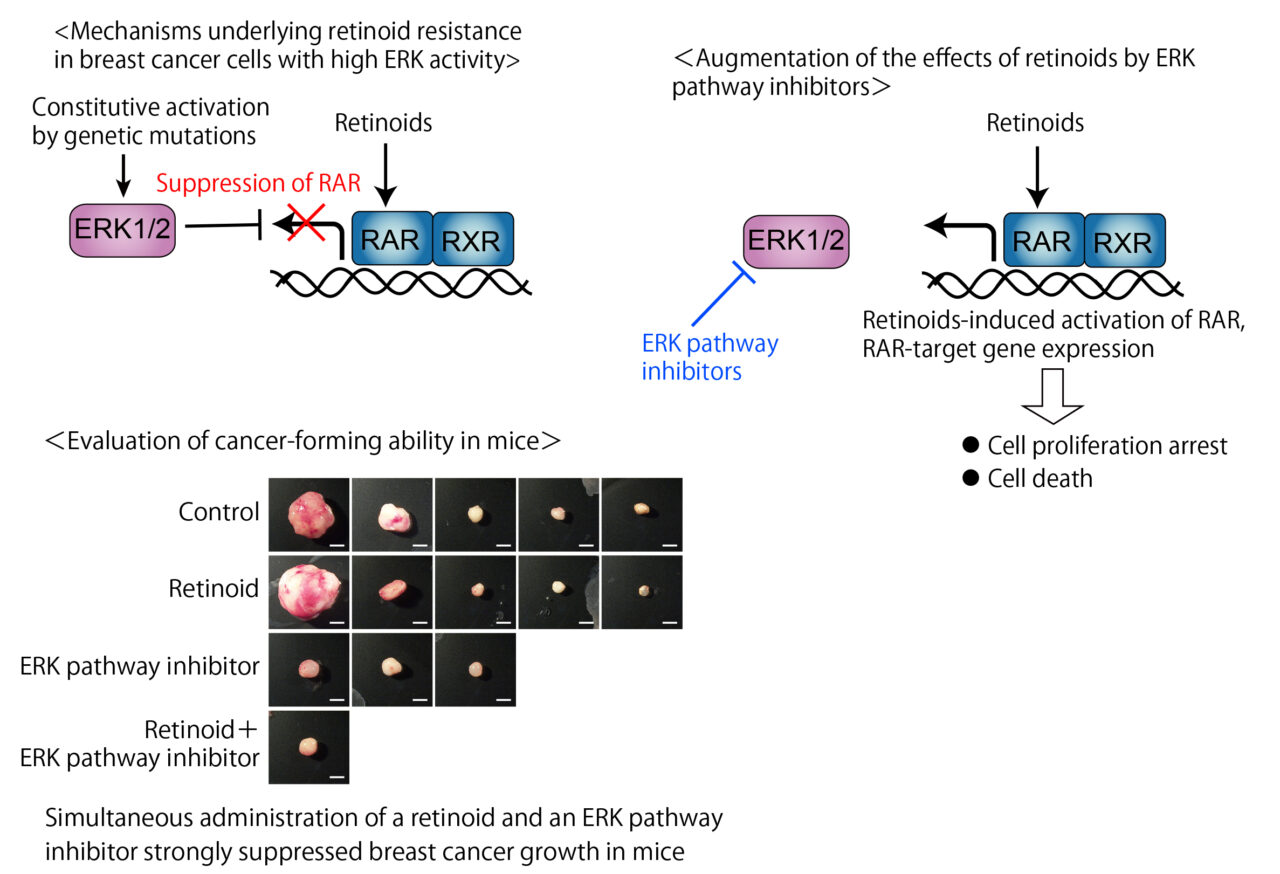Researchers from ICReDD and Hokkaido University collaborated to shed light on why some types of breast cancers are resistant to retinoid based therapies, providing insight that may lead to the development of more effective treatments.
Retinoids are a class of compounds that can help fight cancer by binding to retinoic acid receptors (RARs), which then induce expression of potential tumor-suppressing genes. However, this study shows that ERK MAP kinase signaling, which is often activated in cancer, can interfere with the beneficial RAR signaling. This study analyzed gene expression levels in breast cancer cells and demonstrated that an increase in ERK MAP kinase signaling inhibits RAR signaling, potentially reducing tumor suppressing capability. Researchers also showed the inverse to be true. Inhibiting ERK MAP signaling increases the RAR-dependent tumor suppression activity of retinoids, implicating ERK inhibition as a potential key to overcoming retinoid therapy resistance in breast cancer.
Researchers also cultured cancer cells on a special hydrogel that induces cancer stem cell-like characteristics in regular cancer cells. A similar effect was found for these stem-like cells, suggesting ERK inhibition may also be an effective treatment strategy for cancer stem cells, which are notoriously resistant to anti-cancer therapies and are seen as contributing to cancer relapse.
Finally, researchers analyzed gene expression data from databases of human cancer patients and found that increased ERK signaling and decreased RAR signaling was correlated with 3 breast cancer subtypes. These changes in gene expression were correlated with lower survival rate in patients, emphasizing the importance of understanding the role of these signaling pathways in order to develop more effective treatments and to better understand the different subtypes of breast cancer.
For the full paper, click here.


